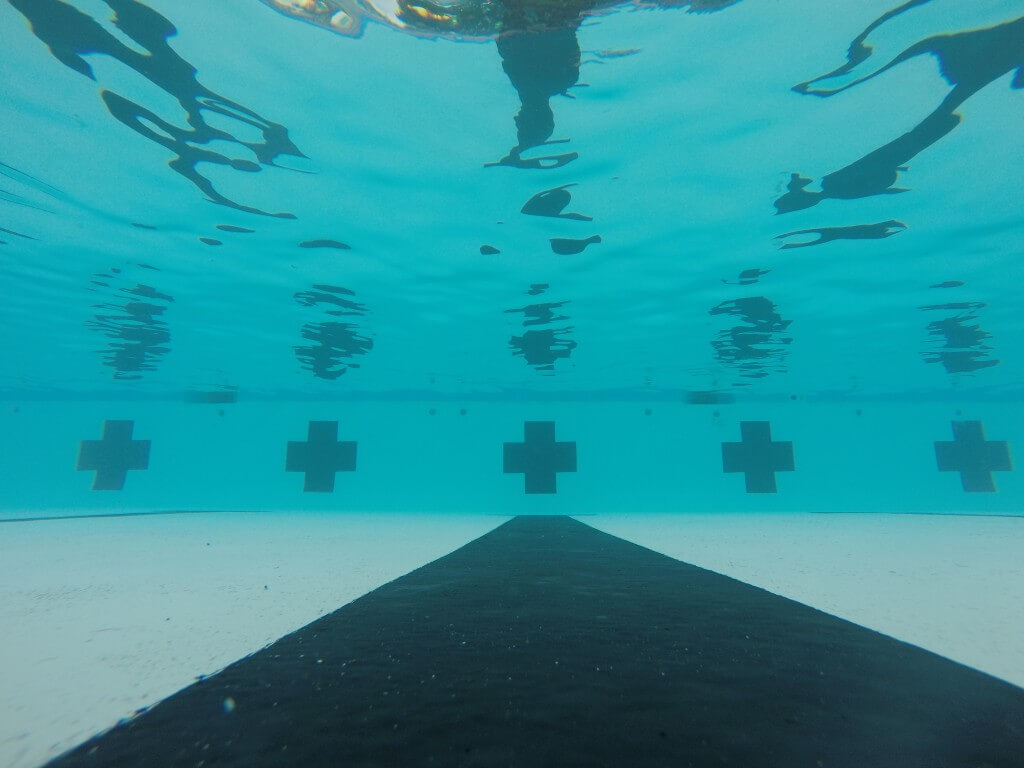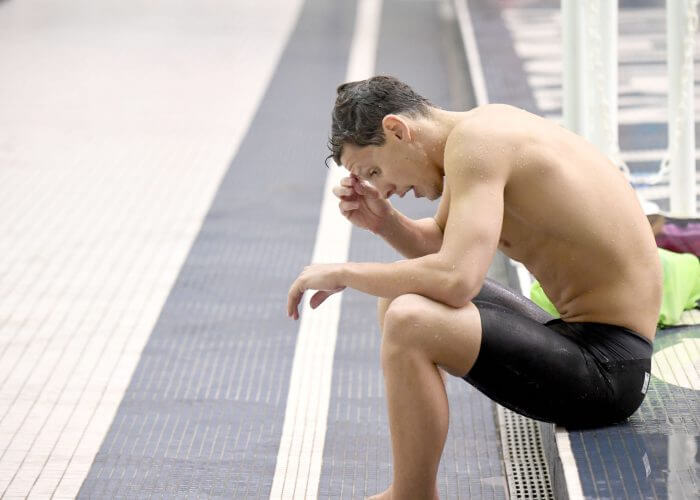Life Lessons From the Long Black Line

By Zach Breeding, Swimming World College Intern
There is no place quite as meditative as the water. Any swimmer can attest to this. When you’re swimming alone, in the middle of the set, one can often get lost in their own head and become some sort of athlete philosopher hybrid. Thoughts that come to mind can relate to life, trying to rationalize swimming, and even what will be for dinner tonight (the answer to that question is ramen noodles).
This article, instead of focusing on questions about why we swim and then rationalizing swimming (which I covered in an earlier article “Why Do We Swim?”), will take the focus of life lessons that can be learned and reinforced through hours of staring at that long black line.
Time for meditation is crucial in anyone’s life, especially if that life is as stressful as that of a high school or college athlete. This does not mean the form of eastern meditation seen in movies and Himalayan monasteries, but merely a time where one is able to reflect on their day in a personal and impersonal way.
One benefit of these long periods of solitude is a chance for the swimmer to think through the days events and plan out courses of action or simply ponder and dissect distinct moments throughout the day.
Life lessons from in the water
The other thing accomplished by the “Philoso-Swimmer” is a coming to grips with and exploration of basic tenets that can be applied to every thing we do–even outside of the pool. Now obviously each swimmer doesn’t have an epiphany per practice where they stop in their tracks after being blinded by some great truth of life. Instead, the swimmer is able to experience and learn things throughout the practices that translate from swimming directly into life.
These lessons, taught through each distance set where ones head is below the surface more than it is above, include but are not limited to:
“This, too, shall pass”
While originally used in a Persian proverb around 1200 AD this saying has become very popular in modern times. It has been used by the poet Edward Fitzgerald and even in a speech by Abraham Lincoln. The quote is double sided, on one side it’s saying that we should’t hold on to good times because they are likely to leave, but it also says the same for bad times. And that side, the more optimistic, is what is learned by the swimmer.
A swimmer is placed in the unique position every day where they often completely lose hope. This moment, often reached from the beginning to middle of practice can be caused by dreading the upcoming main set, or just a general fear of the pain that is going to be experienced soon. However, as the swim goes on and the main set is reached oft it’s not quite as bad as the swimmer had thought it would be and as soon as it started, it’s over. And suddenly, the swimmer who was terrified is able to move on with their life.

Photo Courtesy: Delly Carr / Swimming Australia Ltd.
This is applicable to any situation in life where one is either terrified of doing something or is fearful that the situation will be too hard to overcome. The swimmer who has had it drilled into their head that things aren’t always as bad as they seem and that the dawn is always just around the corner are able to be more mature about difficult situations and even handle them better than those who have not had these lessons.
Doing something hard is more rewarding than doing something easy
A popular request at some swim practices, especially as the season goes on and finals begin to approach, is “can’t we just take a nap instead of practicing?” This, while an enticing offer to the swimmers and maybe even the coaches on occasion, has in all my years never worked. And I would argue that this is a good thing as it teaches not only perseverance but is probably better for the swimmers in the end anyway.

Photo Courtesy: CJ, flickr
The perseverance is taught in that the swimmers really don’t want to practice with all the stuff on their mind yet they still do and are stronger for having done it. The reason that the swimmers are better off is that unless the swimmers are actually sleep deprived, the benefits of a nap stop at the fact that it feels nice. The benefits of swim practice on the other hand are a decrease in stress levels, an endorphin rush which not only feels good but can help with clearer thinking, and the practice can help to take the swimmers mind off the stresses that seem ever present in a student athletes life.
The ramifications this can have for the student athlete later in life are plentiful and useful. For one, a person entering the workforce who already has this mindset ingrained in their personality will be seen as more ambitious and hardworking than one who does not. Another, which ties in with our previous life lesson, is the teaching of perseverance coming in handy later in life with difficult situations.
These are obviously not the only things to be learned from practices, and these in turn teach other lessons such as “some days are better than others” and “complaining doesn’t solve anything” which are equally useful later in life.
While staring at the bottom of the pool for what feels like ages with only your thoughts to keep you company can seem monotonous and like a waste of time, it is actually providing us with invaluable lessons for the rest of our lives.
All commentaries are the opinion of the author and do not necessarily reflect the views of Swimming World Magazine nor its staff.




Edwina Ed….
Elizabeth Taylor so true. Thanks for making me wake up everyday haha
And that is why I did.
It reflects what we live in the water!!
Miguel Sole Canales Danny Moon Maaike Van Willegen Sasha Duncan
Damn